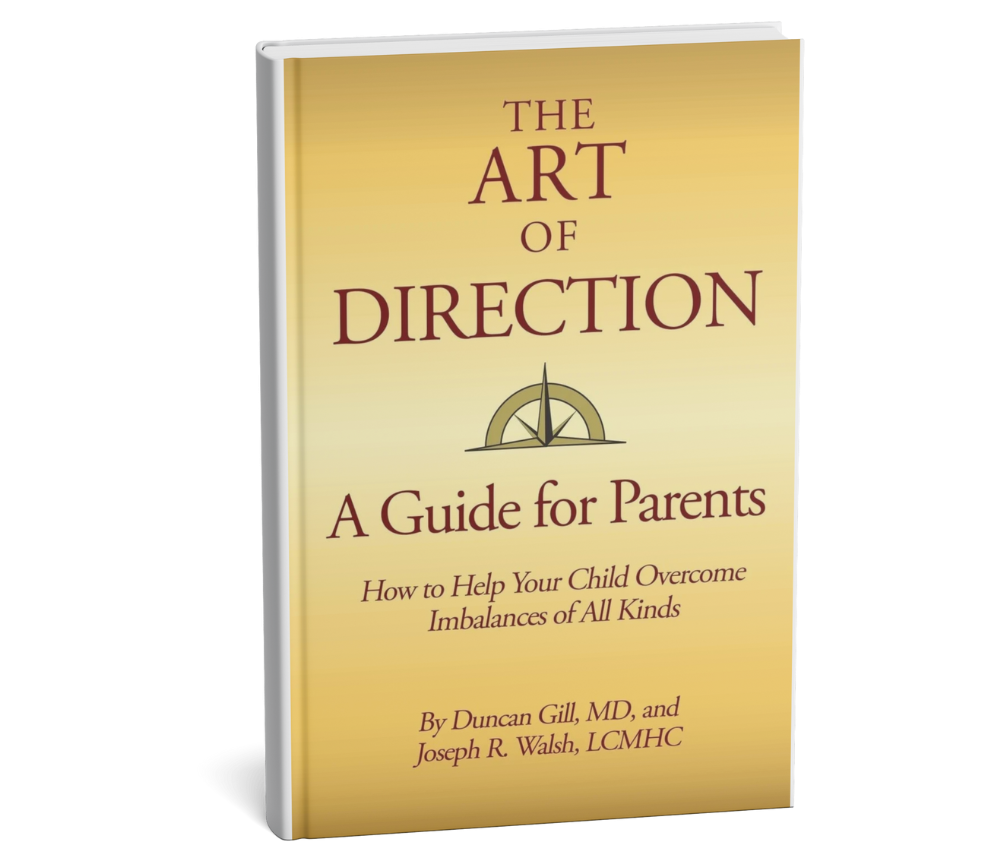Resources from Direction Behavioral Health
Explore resources we’ve accumulated from our decades of clinical experience with children, teens, and their families.
Wholeistic Education
At the heart of our program and group therapy model is Wholeistic Education. It’s designed to help all of our clients function better in the world and progress towards optimal mental wellness.

Is There a Med for That? Podcast
Listen to a child psychiatrist and child therapist discuss the complexities of children's mental health. Our podcast,
Is There a Med for That? explores key topics such as emotional development, behavioral challenges, the impact of family dynamics on a child's well-being, and much more.

The Art of Direction Book
Written by our own Dr. Duncan Gill and the late Joe Walsh,
The Art of Direction dives into our Wholeistic Education method, covering a host of topics ranging from mental health diagnoses to behavioral issues in children and teens.

The Joe Walsh Archive
Assembled here are documents created by the late, great Joe Walsh. Cofounder and Program Director at Direction, Joe sadly passed away in October of 2020. Nevertheless, his legacy at Direction is profound. They are presented in no particular order, nor do we think Joe would want them to be. They represent different fragments and aspects of his ultimate vision of Wholeistic Education, which for him was not just to be a therapeutic model, but a way of life.
Common questions about the program at Direction
To make it easier for parents and caregivers to learn more about Direction, we’ve put together some frequently asked questions. If you have questions beyond what we have here, please reach out to us.



